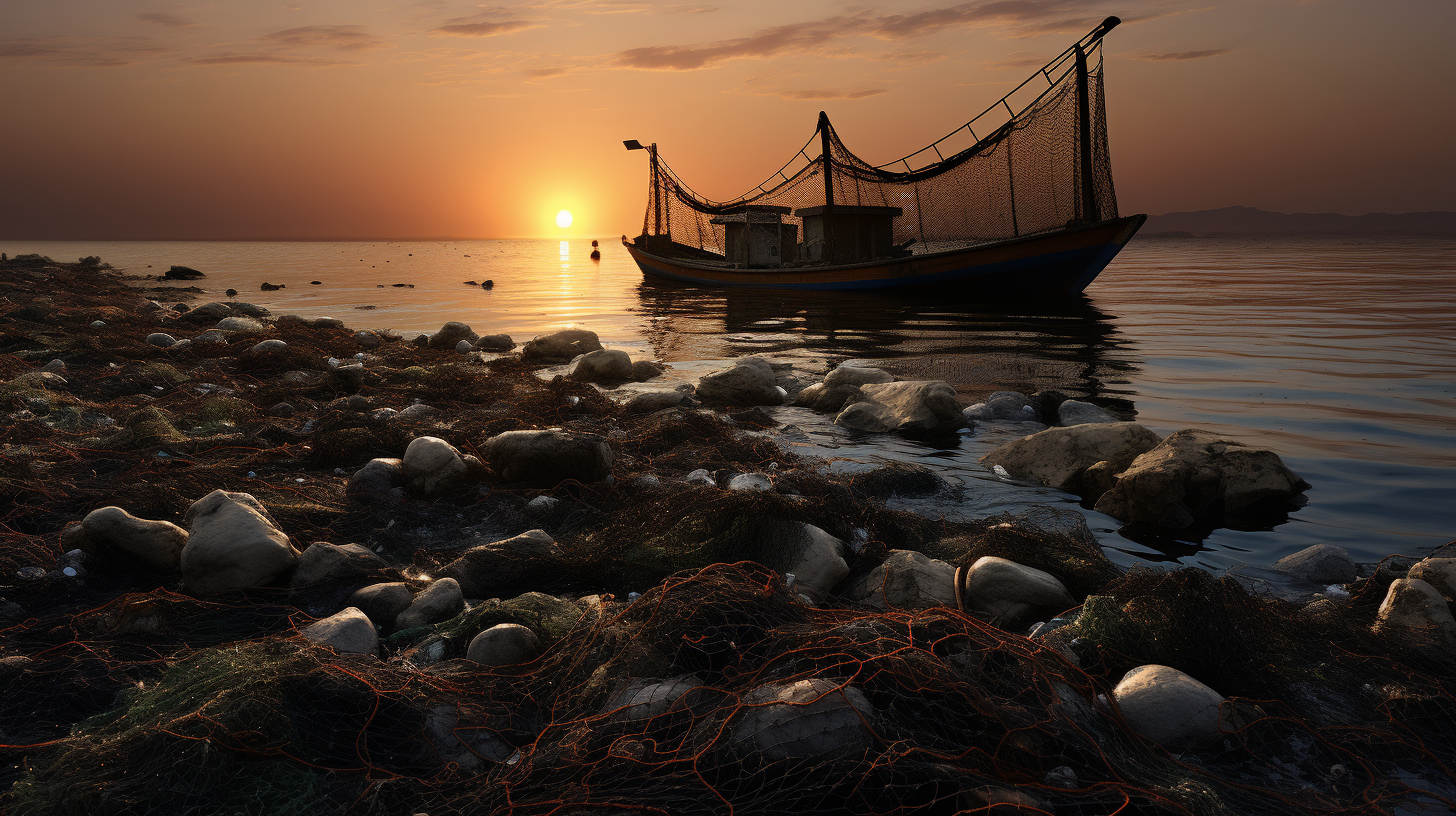In a world where the ocean tides once whispered tales of bounty and freedom, there now exists a reality so incarcerating that it renders the once-sparkling seas into a dystopian abyss. From the plight of the ensnared marine life to the ghostly visions of fishing boats drifting aimlessly amidst the debris, 'Carceral Seas – Fishing Communities Behind Nets of Waste' offers a glimpse into a future where humanity is trapped by the very nets it cast.
The horizon is assaulted not by the beauty of a sunset over pristine waters but by a grotesque collage of plastic bottles, entangled nets, and remnants of human excess. Fishing communities, the custodians of our sea’s former wealth, now navigate a new reality—piloting their skiffs over waves of waste, their nets harvesting more plastic than fish.
Once thriving villages now stand forlorn, their economies gutted. Local lore speaks not of the giant catch but of the great garbage patches burgeoning like malignant growths in the heart of our oceans. Where children once learned the art of casting nets from weathered elders, they now decipher the logos on drifting refuse—each piece a missive from societies far afield, unconcerned with the ripples of their consumerism.
A sobering rendezvous brings us face to face with Ebo Kwesi, a fisherman whose lineage casts back generations. "Our nets are full, but our stomachs empty," he laments. The irony of his words hits with the force of a rogue wave, testifying to a reality where the abundance of the sea is a morbid bounty of waste.
In the depths where coral once thrived, now lie the silenced skyscrapers of the sea, their vibrant facades suffocated by a relentless invasion of plastics. Here, the grind of the ocean’s gears is a cacophony of crunching synthetic materials—a dissonance that haunts the soul of these waters.
But it’s not only the sights that strike a chord of hopelessness, but the stench as well. The air is thick with the acrid scent of decay, a miasma melding with salt spray, challenging even the heartiest of mariners. This is the reek of repercussion, a stale, choking testament to the consequences of a dismissed fragility.
Escaping this submerged prison is but a dream suffocated by layers of plastic sheeting—a cruel shroud that blocks out the sun and suffuses the once-clear water with a murky gloom. "We’re sentenced to life by a trial we never partook in," articulates Ayana, a local environmentalist, her voice a mere whisper against the gales of change.
One can’t help but muse over the irony of the term bycatch. Fishermen once discarded less desirable catch back to the embrace of the sea. Now, they scavenge what few morsels of life remain, the actual fish becoming the accidental catch in their daily harvest of debris.
The choice is a grisly one: adapt to the unwelcome harvest or abandon the legacy of generations. Entrepreneurs once keen on harnessing the ocean’s riches now innovate grimly to repurpose the flotilla of trash. Jewelry from microplastics, furniture from compressed bottle walls—an art of necessity blooms from tragedy, a macabre enterprise in a realm where nature’s rules no longer apply.
The question looms like a waterspout on the horizon—How did we come to this, and where do we sail from here? But for the fishing communities behind nets of waste, such ponderings are a luxury they can’t afford. The stark reality is one of survival. They persist, not with the hope of redemption but with the resignation that this, now, is the world. A world where the ocean’s roar is a dirge, and each wave breaking on the shore sounds a knell for what once was.
The Green Dystopia might be imagined to evoke change but let us not forget that the line between cautionary tales and reality grows ever thinner with each tide of negligence that laps upon our shores.
